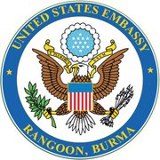[postlink]
https://burmacampaignjapanteam.blogspot.com/2013/01/park-lauds-suu-kyi-for-dedication-to.html
[/postlink]


By Kang Hyun-kyung
President-elect Park Geun-hye lauded Aung San Suu Kyi for her sustained campaign to establish democracy in Myanmar, which remained an isolated state until the government there under President Thein Sein enacted a number of reforms in recent years.
During a meeting at Park’s office in Tongui-dong, Seoul, the president-elect said the sweeping win of Suu Kyi’s party in by-elections held in the south-east Asian country last year was a major step toward achieving democracy there.
“I pay respect to your big sacrifice for democracy of your country. I know what your life in which you put your personal happiness behind that of the people was like,” Park said.
Suu Kyi is leader of a political party the National League for Democracy in Myanmar. The party won 40 out of 45 parliamentary seats in the election held last April. She was freed in November 2010 after being detained under house arrest for a total of 15 years after she opposed the military junta there.
Along with President Sein’s measures for economic reforms, the release of the democracy campaigner sent a positive signal to the world that Myanmar is moving toward democracy.
Following this, South Korea, the United States, Japan and some European countries eased sanctions and pledged to resume development assistance to strengthen ties with the resources-rich nation.
Park expressed hope that she and Suu Kyi will join hands to make a freer and happier Asia.
Suu Kyi responded that the world can benefit from Myanmar if the country achieves peace and prosperity.
Asia’s two prominent female politicians met on the second day of the Myanmar politician’s visit to Seoul. Suu Kyi arrived here on Monday to attend the opening ceremony of the PyeongChang Special Olympics Winter Games which began Tuesday.
Before the meeting with Park, the Suu Kyi paid a courtesy visit to President Lee Myung-bak at Cheong Wa Dae.
Lee and Suu Kyi exchanged ideas on education and development cooperation for 30 minutes, according to the presidential office.
During the meeting, President Lee noted that economic growth and democracy should go hand in hand. “I think that the future of your country is brighter because you are deeply interested in education. South Korea will strive to create more opportunities for young people through economic cooperation with Myanmar,” Lee said.
Suu Kyi was quoted as saying that there are rising demands for vocational training in Myanmar because there are many young people who have no access to education.
She expressed hope that South Korea and Myanmar will work closely together through people-to-people exchanges so that more workers can come from Myanmar to Korea for jobs.
President-elect Park Geun-hye lauded Aung San Suu Kyi for her sustained campaign to establish democracy in Myanmar, which remained an isolated state until the government there under President Thein Sein enacted a number of reforms in recent years.
During a meeting at Park’s office in Tongui-dong, Seoul, the president-elect said the sweeping win of Suu Kyi’s party in by-elections held in the south-east Asian country last year was a major step toward achieving democracy there.
“I pay respect to your big sacrifice for democracy of your country. I know what your life in which you put your personal happiness behind that of the people was like,” Park said.
Suu Kyi is leader of a political party the National League for Democracy in Myanmar. The party won 40 out of 45 parliamentary seats in the election held last April. She was freed in November 2010 after being detained under house arrest for a total of 15 years after she opposed the military junta there.
Along with President Sein’s measures for economic reforms, the release of the democracy campaigner sent a positive signal to the world that Myanmar is moving toward democracy.
Following this, South Korea, the United States, Japan and some European countries eased sanctions and pledged to resume development assistance to strengthen ties with the resources-rich nation.
Park expressed hope that she and Suu Kyi will join hands to make a freer and happier Asia.
Suu Kyi responded that the world can benefit from Myanmar if the country achieves peace and prosperity.
Asia’s two prominent female politicians met on the second day of the Myanmar politician’s visit to Seoul. Suu Kyi arrived here on Monday to attend the opening ceremony of the PyeongChang Special Olympics Winter Games which began Tuesday.
Before the meeting with Park, the Suu Kyi paid a courtesy visit to President Lee Myung-bak at Cheong Wa Dae.
Lee and Suu Kyi exchanged ideas on education and development cooperation for 30 minutes, according to the presidential office.
During the meeting, President Lee noted that economic growth and democracy should go hand in hand. “I think that the future of your country is brighter because you are deeply interested in education. South Korea will strive to create more opportunities for young people through economic cooperation with Myanmar,” Lee said.
Suu Kyi was quoted as saying that there are rising demands for vocational training in Myanmar because there are many young people who have no access to education.
She expressed hope that South Korea and Myanmar will work closely together through people-to-people exchanges so that more workers can come from Myanmar to Korea for jobs.






















